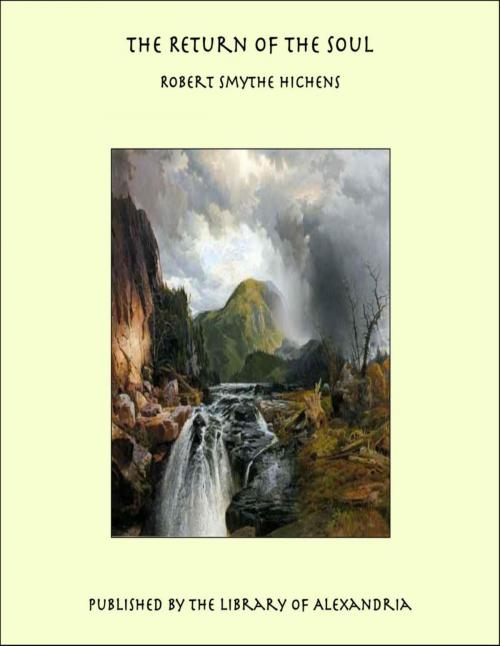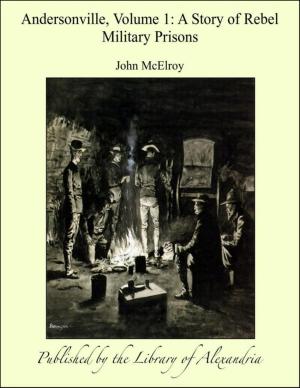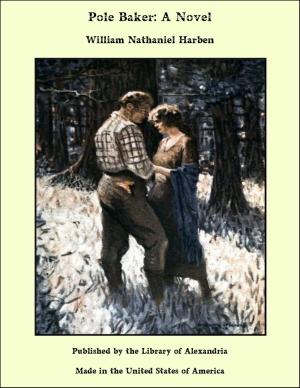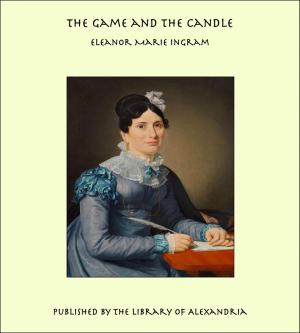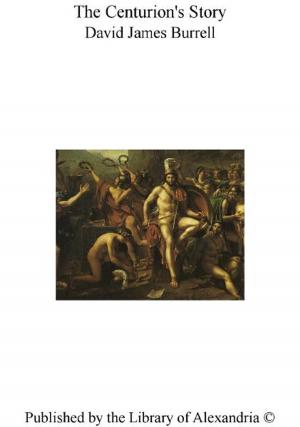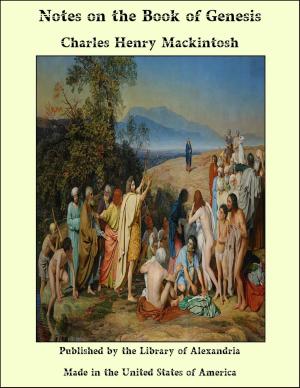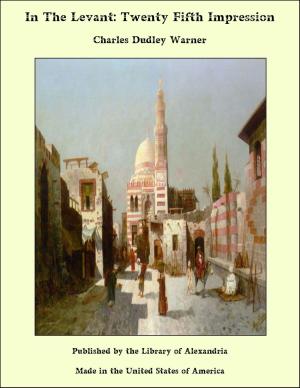| Author: | Robert Smythe Hichens | ISBN: | 9781465551092 |
| Publisher: | Library of Alexandria | Publication: | March 8, 2015 |
| Imprint: | Language: | English |
| Author: | Robert Smythe Hichens |
| ISBN: | 9781465551092 |
| Publisher: | Library of Alexandria |
| Publication: | March 8, 2015 |
| Imprint: | |
| Language: | English |
Tuesday Night, November 3rd. Theories! What is the good of theories? They are the scourges that lash our minds in modern days, lash them into confusion, perplexity, despair. I have never been troubled by them before. Why should I be troubled by them now? And the absurdity of Professor Black's is surely obvious. A child would laugh at it. Yes, a child! I have never been a diary writer. I have never been able to understand the amusement of sitting down late at night and scrawling minutely in some hidden book every paltry incident of one's paltry days. People say it is so interesting to read the entries years afterwards. To read, as a man, the menu that I ate through as a boy, the love-story that I was actor in, the tragedy that I brought about, the debt that I have never paid—how could it profit me? To keep a diary has always seemed to me merely an addition to the ills of life. Yet now I have a hidden book, like the rest of the world, and I am scrawling in it to-day. Yes, but for a reason. I want to make things clear to myself, and I find, as others, that my mind works more easily with the assistance of the pen. The actual tracing of words on paper dispels the clouds that cluster round my thoughts. I shall recall events to set my mind at ease, to prove to myself how absurd a man who could believe in Professor Black would be. "Little Dry-as-dust" I used to call him 'Dry'? He is full of wild romance, rubbish that a school-girl would be ashamed to believe in. Yet he is abnormally clever; his record proves that. Still, clever men are the first to be led astray, they say. It is the searcher who follows the wandering light. What he says can't be true. When I have filled these pages, and read what I have written dispassionately, as one of the outside public might read, I shall have done, once for all, with the ridiculous fancies that are beginning to make my life a burden. To put my thoughts in order will make a music. The evil spirit within me will sleep, will die. I shall be cured. It must be so—it shall be so. To go back to the beginning. Ah! what a long time ago that seems! As a child I was cruel. Most boys are cruel, I think. My school companions were a merciless set—merciless to one another, to their masters when they had a chance, to animals, to birds. The desire to torture was in nearly all of them. They loved to bully, and if they bullied only mildly, it was from fear, not from love. They did not wish their boomerang to return and slay them. If a boy were deformed, they twitted him. If a master were kind, or gentle, or shy, they made his life as intolerable as they could. If an animal or a bird came into their power, they had no pity. I was like the rest; indeed, I think that I was worse. Cruelty is horrible. I have enough imagination to do more than know that—to feel it. Some say that it is lack of imagination which makes men and women brutes. May it not be power of imagination? The interest of torturing is lessened, is almost lost, if we can not be the tortured as well as the torturer
Tuesday Night, November 3rd. Theories! What is the good of theories? They are the scourges that lash our minds in modern days, lash them into confusion, perplexity, despair. I have never been troubled by them before. Why should I be troubled by them now? And the absurdity of Professor Black's is surely obvious. A child would laugh at it. Yes, a child! I have never been a diary writer. I have never been able to understand the amusement of sitting down late at night and scrawling minutely in some hidden book every paltry incident of one's paltry days. People say it is so interesting to read the entries years afterwards. To read, as a man, the menu that I ate through as a boy, the love-story that I was actor in, the tragedy that I brought about, the debt that I have never paid—how could it profit me? To keep a diary has always seemed to me merely an addition to the ills of life. Yet now I have a hidden book, like the rest of the world, and I am scrawling in it to-day. Yes, but for a reason. I want to make things clear to myself, and I find, as others, that my mind works more easily with the assistance of the pen. The actual tracing of words on paper dispels the clouds that cluster round my thoughts. I shall recall events to set my mind at ease, to prove to myself how absurd a man who could believe in Professor Black would be. "Little Dry-as-dust" I used to call him 'Dry'? He is full of wild romance, rubbish that a school-girl would be ashamed to believe in. Yet he is abnormally clever; his record proves that. Still, clever men are the first to be led astray, they say. It is the searcher who follows the wandering light. What he says can't be true. When I have filled these pages, and read what I have written dispassionately, as one of the outside public might read, I shall have done, once for all, with the ridiculous fancies that are beginning to make my life a burden. To put my thoughts in order will make a music. The evil spirit within me will sleep, will die. I shall be cured. It must be so—it shall be so. To go back to the beginning. Ah! what a long time ago that seems! As a child I was cruel. Most boys are cruel, I think. My school companions were a merciless set—merciless to one another, to their masters when they had a chance, to animals, to birds. The desire to torture was in nearly all of them. They loved to bully, and if they bullied only mildly, it was from fear, not from love. They did not wish their boomerang to return and slay them. If a boy were deformed, they twitted him. If a master were kind, or gentle, or shy, they made his life as intolerable as they could. If an animal or a bird came into their power, they had no pity. I was like the rest; indeed, I think that I was worse. Cruelty is horrible. I have enough imagination to do more than know that—to feel it. Some say that it is lack of imagination which makes men and women brutes. May it not be power of imagination? The interest of torturing is lessened, is almost lost, if we can not be the tortured as well as the torturer
